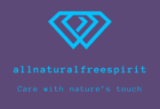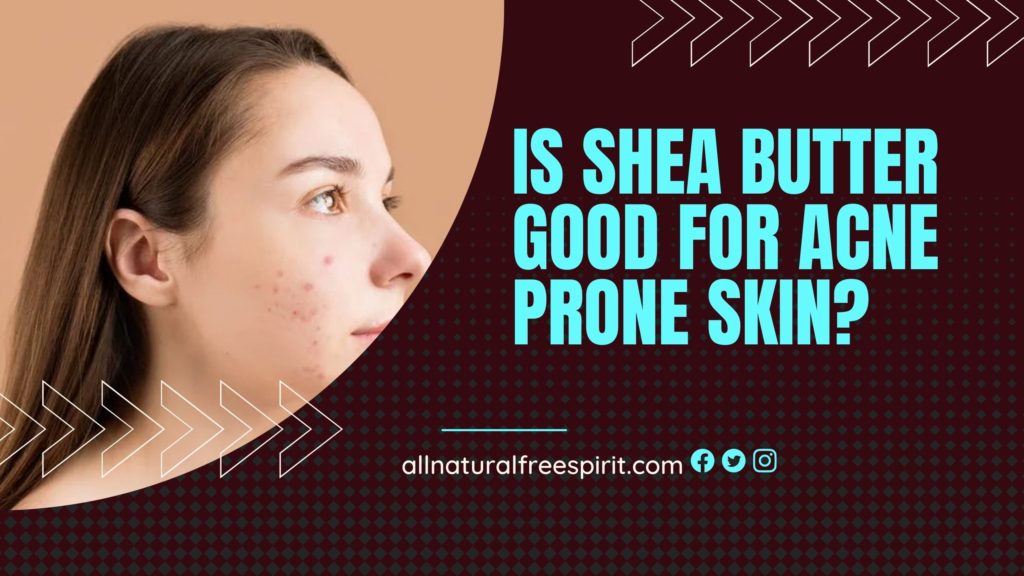Shea butter is a popular natural moisturizer that has been used for centuries to heal various skin conditions, including acne.
You may be wondering, “is shea butter good for acne prone skin and if it will help with your breakouts.”
This post will answer any questions and provide some guidance on why you should consider Shea butter for acne-prone skin.
If you have been looking for a natural, effective way to treat your acne-prone skin that will clear up the breakouts and prevent new ones from forming, then shea butter might be what you need.
Shea butter has traditionally been used in Africa as a moisturizer and healer of burns, wounds, bruises, and insect bites. It is rich in vitamins A & E, which are both necessary nutrients for healthy skin.
In this blog post, we will discuss all things shea butter and help you answer the question ” is shea butter good for acne-prone skin” so that you can decide if it’s right for you!
Shea Butter for Acne: What You Need to Know
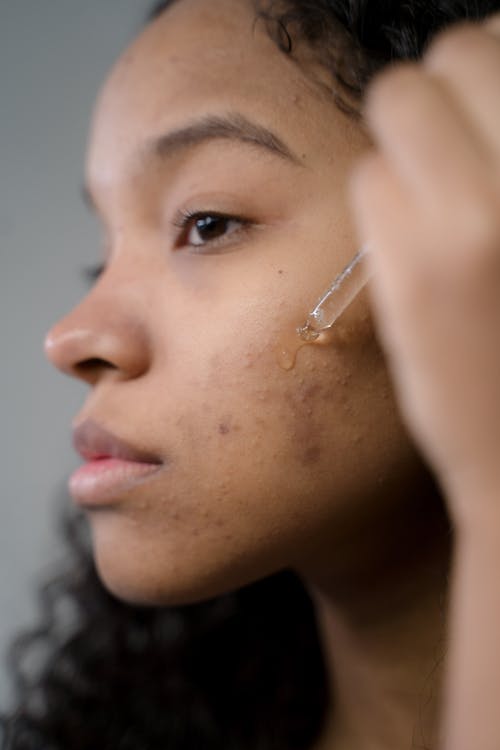
Shea butter is a natural, plant-based product that has been used for centuries to promote healthy skin. If you would like to try using shea butter as a treatment for your acne-prone skin, there are a few things you need to know.
- First, shea butter is not a miracle worker; it will take time and patience to see results.
- Shea butter should be used with other acne-fighting products to see the best results.
- Shea butter is a heavy moisturizer, so you may need to use it sparingly on oily or acne-prone skin.
- Shea butter can be used as a spot treatment for individual pimples or breakouts.
- Shea butter is an excellent choice for those with acne-prone skin because it is non-comedogenic, meaning that it will not clog your pores.
- Shea butter also contains fatty acids and vitamins A and E, essential nutrients for healthy skin. These nutrients help to soothe and protect the skin while reducing inflammation.
- Shea butter has anti-inflammatory and antioxidant properties that make it an effective treatment for acne-prone skin.
The benefits of shea butter are endless, and for this reason, it has become a top-rated product. So to answer the question,” is shea butter good for acne-prone skin”? Continue reading to find out!
Read: Avocado butter vs shea butter
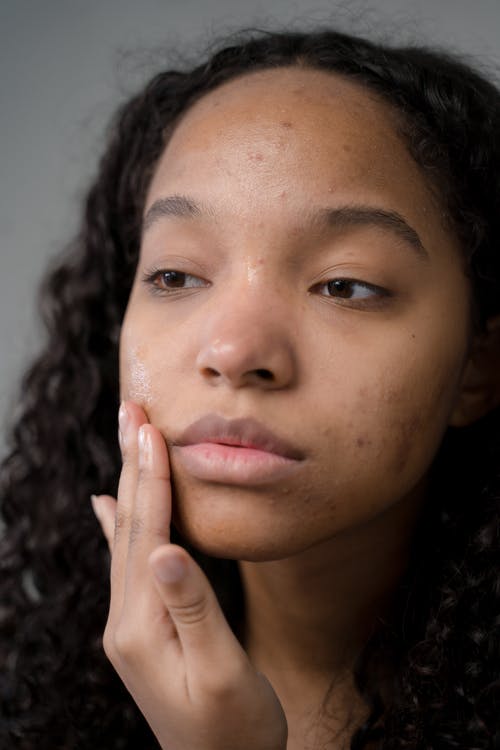
Why You Should Consider Shea Butter for Acne and Skin
A popular question surrounding Shea Butter is whether or not it’s suitable as an ingredient in skincare products for individuals with acne.
The answer is that it depends on the type of Shea Butter and why you are getting it.
For example, Shea 8 oz shea butter contains additional ingredients like cocoa butter, which can be counterproductive when treating acne because they may clog pores.
However, the Shea Butter from Raw Africa is 100% natural uncontaminated with other ingredients, making it perfect for treating acne.
1. Shea Butter Can Help Control Acne Flare-ups
If you suffer from frequent acne flare-ups, shea butter might be a good option for you.
Shea butter has anti-inflammatory properties that can help to reduce the redness and swelling associated with acne breakouts.
It can also help control sebum production, which is the oil that contributes to acne formation.
Read: How to whip shea butter without a mixer
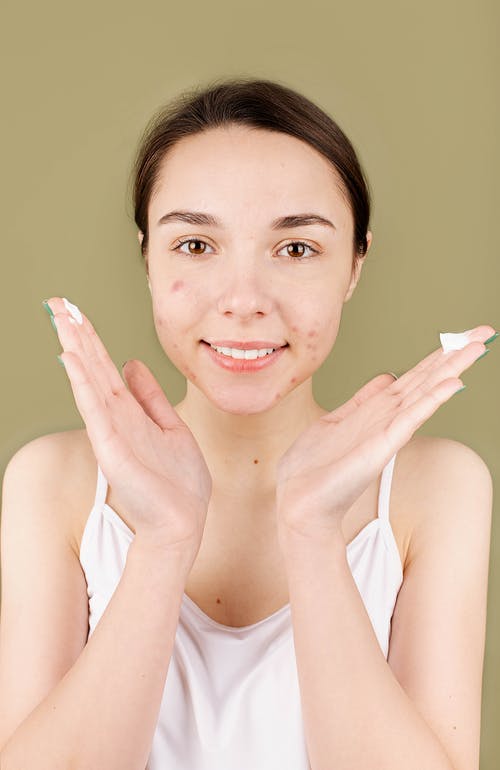
2. Shea Butter Help to Dissolve Sebum that Causes Acne
Shea butter is an effective moisturizer and natural treatment of acne because it contains omega fatty acids that help to restore your skin’s protective barrier while simultaneously locking in moisture.
The fatty acids present in Shea butter help dissolve the sebum that has built up in pores and hair follicles, which can cause acne.
Shea butter also helps keep the skin moisturized, which can help prevent sebum from becoming too dry and clogging pores.
3. Shea Butter Can Help Reduce Scarring from Acne
If you have acne scars that you would like to reduce or fade, shea butter might be a good solution for you. Shea butter is rich in vitamins A and E, essential nutrients for healthy skin.
These vitamins help promote the growth of new skin cells, which can help reduce the appearance of scars.
The vitamins A and E also work to soothe inflamed skin while reducing redness and scarring.
Additionally, Shea butter’s anti-inflammatory properties help to calm any existing inflammation on the skin while preventing new breakouts from forming.
Read: Shea butter hair growth recipes
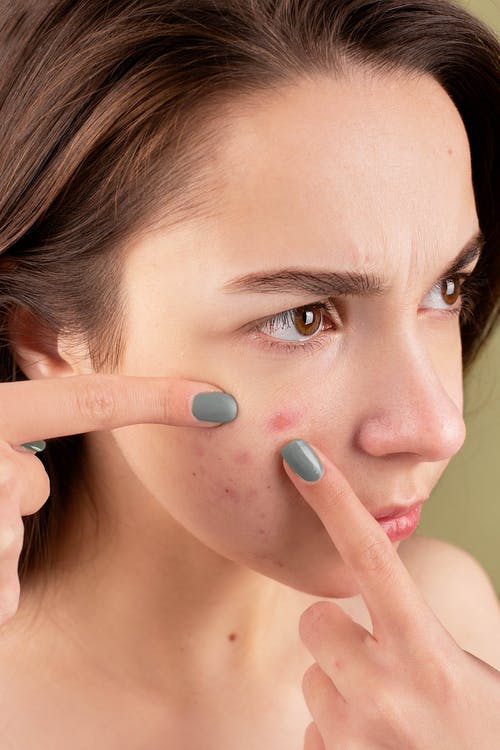
Frequently Asked Questions about Shea Butter and Acne
How do I use Shea Butter for acne?
Shea butter can be applied directly to the skin, or it can be added to your favorite facial moisturizer or acne treatment. If you are using Shea Butter for the first time, start by applying a small amount to a patch of skin on your arm to test for any allergic reactions.
Can I use Shea Butter if I have oily skin?
Yes, you can use shea butter if you have oily skin; in fact, shea butter’s ability to dissolve sebum can be beneficial for those with oily skin. However, it is important to choose a type of shea butter that does not contain additional ingredients like cocoa butter, which can be counterproductive when treating acne.
Can Shea Butter help reduce the appearance of scars?
Yes, Shea Butter is rich in vitamins A and E, which are essential nutrients for healthy skin. These vitamins help promote the growth of new skin cells, which can help reduce the appearance of scars. Shea butter also has anti-inflammatory properties that help soothe inflamed skin while reducing redness and scarring.
How often should I use Shea Butter if I have acne-prone skin?
We recommend applying Shea Butter twice per day after washing your face with cold water. You may find that one application is sufficient if used before bedtime. Please note that you must wait 30 minutes between applications so the product can be absorbed into the skin.
Is Shea Butter Good for Acne Prone Skin?
So, is shea butter good for acne-prone skin? The answer is yes – but it’s not a miracle worker. Shea butter should be used with other acne-fighting products to see the best results.
It is also important to note that shea butter can be used for other skin conditions, such as sun damage, eczema, and psoriasis. If you are looking for an all-natural way to treat your acne, shea butter might just be what you need!
